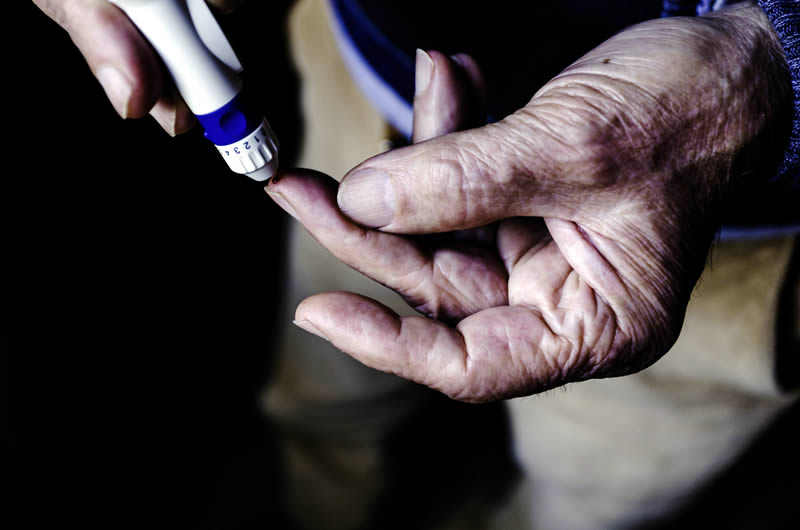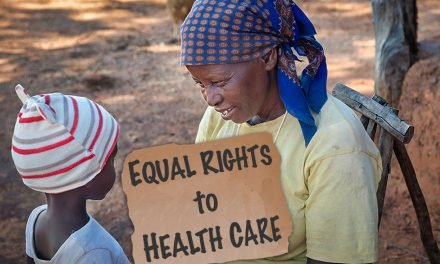Mens’ health – signs older men shouldn’t ignore
When it comes to looking after their health older men, especially, tend to put things off. Whether it’s down to busy lives, a sense of invincibility, or simply not wanting to make a fuss, men often fall behind women in keeping up with routine checkups and screenings.
But the truth is, looking after your health becomes more important as you age. Many serious health conditions develop later in life – often quietly, without noticeable symptoms. Early detection can mean the difference between effective treatment and more severe outcomes.
The silent killers: high blood pressure and high cholesterol
High blood pressure, also known as hypertension, and high cholesterol are often called the ‘silent killers’ because there are usually no noticeable warning signs or symptoms – even at dangerously high levels. You may feel perfectly healthy, even energetic, while these conditions quietly cause long-term damage to your arteries, heart, kidneys, and brain. Left undiagnosed, they dramatically increase your risk of a heart attack or stroke.
That’s why regular checkups are so crucial, especially as you get older. Find out if your local pharmacy offers a clinic service where you can have your blood pressure checked monthly. The test takes a few minutes and may be offered free of charge or at a nominal fee.

Some pharmacies sell portable ‘cuff’ blood pressure monitors for home use. It’s important to sit quietly for about 5 minutes before taking the measurement. Avoid talking, eating or drinking coffee during this time. Take several readings, a few minutes apart to allow for natural variations. Normal blood pressure is 120/80 but it can fluctuate due to factors like activity level, stress and age. If your blood pressure is 180/120 or higher, you need to see a doctor without delay.
Although you can’t feel high blood pressure, severe headaches, dizziness, blurred vision and frequent nosebleeds can indicate a problem and should never be ignored.
High cholesterol or blood sugar levels can be detected early on through routine blood tests – which is why it’s so important to go for annual checkups – allowing for lifestyle changes or medication to bring things under control.

Prostate cancer – more common with age
Prostate cancer is the second most common cancer among men in South Africa. Risk increases with age – rising sharply after age 50. Approximately 6 in 10 prostate cancers are diagnosed in men aged 65 or older.
Many men with early-stage prostate cancer experience no symptoms, which is why screening and awareness are vital. If symptoms do appear, they may include:
- Difficulty starting or stopping urination
- A weak or interrupted urine flow
- Increased need to urinate at night
- Painful urination or ejaculation
- Blood in urine or semen
It’s important to note that these symptoms could also point to non-cancerous prostate enlargement, which is also common with age. Regardless, they should never be ignored.
Many men dread the old physical examination but today, a Prostate Specific Antigen (PSA) blood test is often used to screen for prostate cancer. If the PSA level is high, further testing may be necessary.

Diabetes: watch for subtle signs
Type 2 diabetes often develops gradually, and many men dismiss early symptoms like tiredness, increased thirst, weight loss or frequent urination as “just getting older.” Erectile dysfunction and a loss of muscle mass are also symptoms frequently found among older men with diabetes.
Left untreated, the disease can lead to serious complications, including heart disease, nerve damage, wounds that don’t heal, vision loss, and more. So it makes sense to take a routine blood test to detect diabetes early.
Normal blood glucose levels are between 70-100 mg/dL when fasting, but can rise to 140 mg/dL after eating. If you are going for blood tests, be sure to ask if you should refrain from eating for a period beforehand.
Simple lifestyle changes – such as diet, exercise and weight management may be all that’s needed to control diabetes. In more severe cases, you may need medication.
Mental health and cognitive changes
Mental health is another area where older men are at risk but often suffer in silence. Depression is under-diagnosed in men, partly because the symptoms can be different. Rather than sadness, men may experience irritability, fatigue, or loss of interest in hobbies and social activities.
Memory problems or difficulty concentrating could also be early signs of cognitive decline or the onset of dementia. Again, the sooner these are recognised, the more effective treatment and support can be.

Warning signs you shouldn’t ignore
In addition to routine checks, be aware of these symptoms that should prompt a visit to your doctor:
- Chest pain or tightness
- Shortness of breath during rest or light activity
- Unexplained weight loss
- Persistent fatigue
- Changes in bowel or bladder habits
- Lumps or unusual swellings
- Erectile dysfunction (which can sometimes indicate heart disease)
Men’s health: prevention is better than cure
Taking care of your health doesn’t have to mean endless appointments or overhauling your lifestyle overnight. Start with the basics:
- Book an annual health check with your doctor;
- Monitor your blood pressure, sugar and cholesterol regularly;
- Stay active – walking, swimming, or cycling can all make a big difference;
- Eat a balanced diet – low in processed foods and high in fibre, fruit, and veg;
- Limit alcohol and stop smoking;
- Talk to someone – whether it’s about physical symptoms or your mental wellbeing.

Your health is precious
Getting older is inevitable, but how you age is, to some extent, in your hands. Don’t wait until something goes wrong to start looking after yourself. Health checks may seem unnecessary, but they could add years to your life and, more importantly, life to your years.
Make it a habit to have an annual check up in your birthday month as a gift to yourself. Because, looking after yourself isn’t selfish – it’s essential. And if you won’t do it just for yourself, do it for the people who care about you.






 Christmas joy – thanks to you!
Christmas joy – thanks to you! Robin Hood Foundation spreads love across Tafta Homes
Robin Hood Foundation spreads love across Tafta Homes 12 Days of Giving – spread joy to older people this Christmas
12 Days of Giving – spread joy to older people this Christmas Tafta resident pens powerful tribute to heritage and hope in new book
Tafta resident pens powerful tribute to heritage and hope in new book Introducing TEAL – our upgraded national Elder Abuse Helpline
Introducing TEAL – our upgraded national Elder Abuse Helpline Beat the year-end blues – 6 tips for staying positive during ‘silly season’
Beat the year-end blues – 6 tips for staying positive during ‘silly season’ Wisdom on ageing – the most exquisite chapter
Wisdom on ageing – the most exquisite chapter Thriving through 2025 – a toast to life
Thriving through 2025 – a toast to life ‘Human Forever’ inspires Durban audience
‘Human Forever’ inspires Durban audience Celebrating 100 years of life with Mrs Rosemary De Waal
Celebrating 100 years of life with Mrs Rosemary De Waal